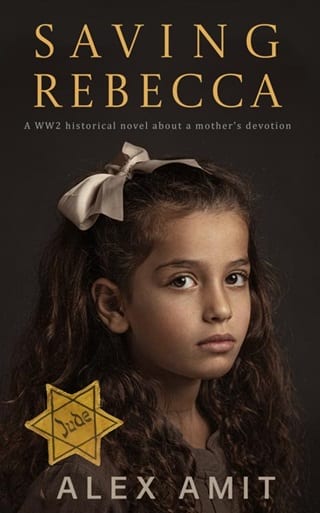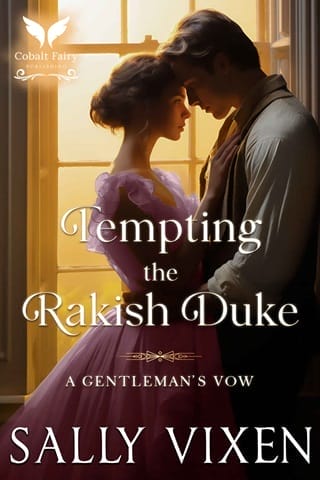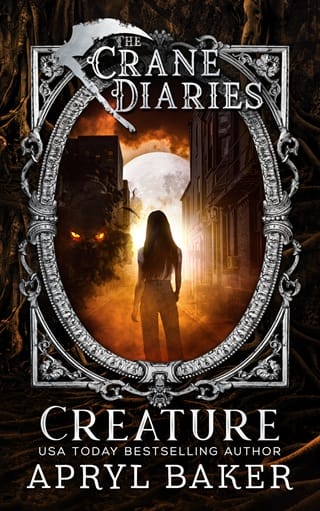20. Drancy, September 1945
Chapter twenty
Drancy, September 1945
Five months later.
"Drancy," the bus driver announces and stops at the small square in the town center.
I run my hand through my short hair. It's already started to grow, but it'll take a long time to return to what it used to be, or maybe it doesn't matter. Nothing will ever be the same again. The touch of the soft fabric of my simple, light-green summer dress also feels strange to me.
I look around, trying to recall, but I can't remember the square and the houses around it. Could it be that I've never been here before?
The driver pulls the metal handle that opens the door, and the people around me stand up and get off the bus, their noise overcomes the engine's rumble. There's no policeman in a blue uniform holding a drawn weapon who shouts at us to get in line.
I get off the bus and feel the square's pavement under my feet. Most of the shops around the square are closed, only one grocery store is open, and there's a sign at its entrance announcing, ‘There is butter, there are eggs.' There is no line of people waiting to enter the store.
The bus continues on its way with a slow rumble, disappearing from the square, leaving behind only silence and the smell of burnt gasoline. The people who got off the bus also scatter around. A second later, they'll disappear into the nearby streets, leaving the square deserted again.
Where's the huge internment camp building? I try to find, maybe it's peaking over the roofs of the houses surrounding the square, but I can't. Could it have been destroyed? I have to get there. To find some clue as to what happened to her.
"Excuse me," I call tp one of the women who arrived with me on the bus and hurry after her. "Do you happen to know where the internment camp is?"
"Where the German camp was?" She stops and asks me. "Why do you want to know?" Her brown eyes study me. She's wearing a simple, light blue country dress. Is she from here?
"Not a German army camp, a camp where they kept prisoners, Jews," I look back at her. Does she notice my German accent? Does she suspect I'm one of them? One of the Germans?
"It's over there," she points toward one of the streets and walks away before I can ask her another question. I watch her back as she enters one of the houses and disappears. Did she know about that camp when I was there? Did she know what they did to us there ?
After a few minutes of walking down the street, I come out of the row of houses at the edge of town and suddenly see it. I stand and start shaking. The big, gray concrete monster stands before me, its open windows watching me as if threatening to take me back inside.
"Breathe, breathe," I whisper to myself, "They're not here. The war is over. They lost."
I keep standing in my place, watching it. I know it doesn't make any sense, but all the way here from Paris, I imagine that as soon as I get close to the building, Rebecca would run toward me in her brown dress, and I'd hug and whisper to her that she had grown and changed so much. It's been three years already. Breathe, breathe. You knew it was just a fantasy and that she isn't here.
I'm waiting for the tears to come, but there's nothing. I just feel the dryness in my throat in the warm wind, like a big hole that has gaped and refuses to be filled. I have to go to the camp and the building inside it, I have to know.
From a distance, it seems empty, the wire fences surrounding it are still there, but the gate is open, and the two policemen who always stood guard next to it are gone. The main yard, where I walked for so many hours among all the other prisoners, is also deserted.
I hear footsteps behind me and turn around. A woman walking on the road, pulling a goat by a rope, is approaching me. Was she here three years ago and saw me from the other side of the fence?
"Excuse me, do you know what happened to the people who were here?" I asked her. Maybe she knows what happened to my Rebecca. Perhaps she'll give me some clue ?
"They took them," she says after a moment, and I feel the hole inside me get bigger.
"Do you know where?"
"To the trains, to the station. The Nazis who were here took them," she spits on the ground. "And then they brought captured American pilots here. We tried to bring them food," she looks at me, "for the Jews, who were here, but they didn't let us. It was forbidden. They didn't let us get close to the fences. There's no one here now."
"Is there anyone here who knows if there were any survivors?" I ask her and look at the houses around.
"I'm sorry, we tried," she says, moving away from me, pulling the goat behind her by the rope. "This is a cursed place. I can't enter it even after they've gone."
I watch her until she disappears between the houses, turns around, and walk towards the camp. Maybe I'll find a clue there.
The three wooden steps leading up to the German commander's barracks creak under my feet as I slowly go up them. "Breathe, there's no one here," I whisper to myself, but the tension doesn't let go. "You have to go on. You have to find her." I stand in front of the closed wooden door. The metal sign ‘Captain Carl Becker' is still attached to the wooden door by two screws. I take a deep breath, reach my trembling hand to the door, and open it, flinching back at the creaking of the metal hinges.
Meow , A skinny, dirty, stray cat runs out of the barracks and makes me take a step back. But after a moment, I take a deep breath and go inside, and look around .
The inside of the barracks is empty. There's nothing left in it. Everything inside was taken, either by the Americans or the French. Only a large picture of the Führer is thrown in the corner, full of bullet holes. Everything else is gone. How do things disappear this way during war?
I leave the barracks and enter the camp, pass the barbed wire fence, cross the deserted square, and walk to the building, to our entrance. My legs seem to know the way to the room where Charlotte, Rebecca, and I lived for such a long time on their own. I look around at the bare concrete walls. They look unfamiliar to me. Everything that was ours is gone: the straw we slept on, her paintings, the stranger's suitcase – as if there was no trace of us, as if we were never there.
I get down on my knees and search the ground, looking around. Maybe Rebecca wrote something down, but there was nothing written by her, not even on the walls. What happened to my daughter?
I leave the room, exit the building and the gate, I spit on the gate's wooden beam and the barbed wire fence wrapped around it. I need to go back to Poland and look for clues in that place I can't even name without trembling, although I know I can't go back there. I know what happened to all the children who arrived there. I try to cry, but I can't. Maybe I should go back home, to Berlin, although I no longer know where my home is without her. I take one last look at the gray concrete monster and turn my back to it, start walking between the houses, back to the square and the bus stop. I have one more place I need to go to before leaving Paris.
‘The New Republic Hotel' is written in black letters on the sign above the building door in the third arrondissement. I stop in front of the five wide stairs leading to the hotel's entrance and look around. Nothing in the street has changed. There are no destroyed buildings around and no bullet holes that have left their mark on the walls from the war. I look up at the windows decorated with wrought iron railings. The hotel remains as it was.
"Un, deux, trois, quatre, cinq," I whisper to myself as I walk up the stairs and stand before the closed door. I take a deep breath, open the front door, and enter the lobby. I want to say goodbye to her before I leave this city forever.
"Good afternoon. Can I help you?" A man standing behind the reception looks up at me. Where is Angelina?
I look around. The green armchair with floral upholstery still stands in the corner of the small lobby. She used to sit on it in the evenings and read. Next to it is the reading lamp that was turned off while she was reading by candlelight. Nothing in the lobby has changed except the stranger standing at reception.
"Mrs.?" He turns to me again. He's about my age, maybe a bit older than me, thirty or so. He's wearing a light-blue, button-up shirt and a dark tie, and his black hair is a little disheveled.
"I was here once," I awkwardly smile at him, looking at the dark mahogany mailbox and key cabinet behind it, on the wall. My eyes examine the cabinet cube where our key used to be, recalling all those times I looked at it and searched for another letter from my husband.
"And would you like to return and rent a room again?" He politely smiles at me .
"No, thanks," I answer and turn to leave. I should ask him what happened to Angelina, but I can't. I've lost too many people in the last few years, I'm not sure I can hear another lost name.
"Have a good day, Madam," I still hear him as I place my hand on the door's copper handle.
"Every guest in my hotel leaves something behind, but leaving your lover's earrings in the laundry is a bit excessive..." I hear someone say from the back room as I stop and start to shake. "Sarah?" I hear her say after a second and turn around. It's her.
"Sarah?" Angelina says again, running toward me behind the counter and hugging me tightly. "You're back," she whispers while we hug, and I feel her warm hands holding me. "René, this is Sarah. I told you that I was keeping all her things and that she'd come back," she tells him and takes my hand, pulling me behind the counter with her. "Sarah, this is René, my husband. He came back from Germany five months ago," she smiles, and I notice her tearful eyes. "You're back too; I knew you'd come back, your suitcase is waiting for you," she doesn't hold back and hugs me again, and I feel embarrassed.
"Yes, I'm back," I keep holding her hand and look at her. Her black hair is still neatly tied in a ponytail, but something about her has changed. Her face is glowing. I step back and look down, noticing a slight bump through her dress.
"Are you…?" I look at her belly.
"Yes…" she smiles at me and caresses her belly. "Where's…?" She looks toward the door.
"No…" I tell her and shake my head. That's all I can say.
"Oh… Sarah," I see the tears in her eyes, and she hugs me again. "I've been thinking about you all this time."
"At least he came back, and you're expecting," I change the subject. I can't talk about her.
"There's something else," she tells me.
"What do you mean?" I watch her and her husband.
"Someone is waiting for you upstairs, in the room that was once yours."
"Who?"
"He's been here for two weeks, hoping you'd come, and you did."
"Who is he?" I ask her. Who can be waiting for me here, at this hotel? Could it be someone who has a clue about Rebecca?
"I'm not telling you. Go up and see for yourself," she smiles at me. "You'll be glad to see him."
"Thank you," I hug her and rush up the stairs. Who could it be? Heavily breathing, I stop in front of the door on the fourth floor, arrange my dress and hair, wait a moment, then knock on the door.
I hear footsteps from inside, the door opens, and I see him.
"Sarah," Erwin, my husband, stands and looks at me. He hasn't changed. He looks exactly the way he did when he left us on the train platform five years ago.
"Sarah," he walks up to me and hugs me tightly. I feel his big hands are crushing and hurting me. Although several months have passed since I was freed, and I've gained some weight, my body is still weak, and I'm groaning in pain.
"Sarah, I've missed you so much," he says and kisses my cheeks and lips non-stop. "You don't know how much I've tried to bring you to the Free Zone and from there to Spain," he caresses my short hair. "I've tried every possible way. I've waited for you in Madrid the entire war. What happened to your hair? Why did you cut it?" He keeps on speaking, more and more. His voice sounds like a muffled noise far away from me, as if he's behind a large glass window. I'm unable to reach out and hug him back. He suddenly seems like a stranger I once knew and belongs to another life, a life that no longer exists. It seems like he keeps talking to me, but I cannot understand what he's saying. "Sarah, where is Rebecca?" I think he's asking me in his flow speech.
"Sarah, where is Rebecca?" He asks me again, holding onto my shoulders and shaking me.
I don't reply. I release myself from his embrace and go to the window from which I used to look at the city's rooftops in order to relax, but I can't. He keeps talking behind my back non-stop. I need a cigarette.
With a trembling hand, I open my bag and take out a pack of US Army cigarettes. My fingers tear the white paper, and I place the cigarette in my mouth, light it with a Zippo, and deeply inhale. I have to calm down. I need him to stop talking to me, just for a few minutes, so that I can lean quietly on the windowsill and look outside.
"Sarah, turn around, I'm talking to you. Where's Rebecca?"
"There's no Rebecca," I turn around and answer, exhaling the smoke into the room .
"Where is she? What happened to her?"
"I lost her," I inhale once again. I need him to shut up. Please shut up. Stop talking to me. I need silence.
"Did you lose our daughter?" It seems to me that he's shouting at me, but his lips as if voicelessly move in front of me. "What mother loses her daughter? And what happened to your hair? And why do you smoke?" He approaches me and grabs the cigarette from my hand, holds it in disgust, and extinguishes it in the metal ashtray on the small table in the corner of the room. "And where's your wedding ring?" He returns to me and grabs my hand. "Aren't you a married woman? Where's your devotion to our marriage while I've been waiting for you all this time?" The touch of his fingers hurts me as if ice picks are trying to peel my skin off.
I'm unable to answer, and I look at the cigarette crushed in the ashtray.
"Why don't you answer me?" He approaches and keeps talking to me. "Don't you have any answers for me?" He grabs my shoulders once again and shakes me. Who is this foreign man?
"You know," I grab his hands and push them off my shoulders, annunciating every word. "When the Americans came to the camp and freed us," I once again take out the cigarette box from my bag, pull out a cigarette and light it, blowing the smoke in his face. "We were so hungry, all we had to eat in our last month there were a few slices of bread per day, and not even that in the last few days," I inhale from the cigarette again. "And when they arrived, with their trucks and their weapons and their food, we wanted to eat so much, but those who did died, simply because were no longer used to eating," I turn my back to him and walk to the window, my fingers holding the lit cigarette and shaking. "And then, the American soldiers gave us cigarettes, they told us to smoke, smoke and eat a little, because otherwise, we'll die," I keep talking and look outside at the houses of the peaceful city. "So, I smoke. And yes, I lost my wedding ring, and I lost Rebecca, our daughter," I turn to him. "And I don't know who you are anymore."
"Sarah, I'm your husband," he tries to come closer and hug me, but I push him away.
"No, you're not my husband anymore. You're a stranger," I say to him. "You're a stranger who wasn't by my side and didn't help me in any of the horrible places I've been to. You're a stranger who lived in a world without Nazis, hunger, death all around, and things that I'd never be able to talk about, and all you can do is complain about who I've become. You might not have changed, but I have. I'm not the same Sarah you left on the train platform five years ago, promising to meet a month later. I'm Sarah, who's died a thousand times and lost her daughter," I say to him and can't stop myself.
"Sarah, I'm your husband, Erwin, the one you've married," he says, and I look at him and just want him to leave. I can't be in the same room as him.
"You're not my husband anymore. I have no idea who you are," I tell him. "I'm going to freshen up in the bathroom at the end of the corridor now. I had a long drive," I inhale once more, feel the hot air in my throat, go over to the ashtray, and forcefully crush the cigarette. "And when I come back," I look into his eyes and speak slowly, "I don't want to see you here. If you're still here by the time I back, I'll call the hotel's owner, and she'll kick you out. Trust me, she'll do it for me."
"Come sit by my side," Angelina tells me later at night as I step into the lobby. "René has already gone to sleep, and I can't fall asleep," she puts aside the book she's been reading and moves a little in her armchair, making room for me.
"Thank you," I smile and huddle beside her on the armchair, feeling her warmth. Erwin had left the hotel earlier, leaving me to the silence I so badly needed, in front of the window and the city's rooftops. But later, as night fell, I felt lonely, and I went down the creaking wooden stairs to the lobby, finding her sitting on the armchair in the corner of the room, reading a book by the lamp light. There are no longer blackouts and we're allowed to turn on lights at night. The war is over.
"Are you okay?" She asks after a while.
"I lost her," I say softly. "At some point, they sent me to a camp in the East, and she stayed here, in Drancy, and she's disappeared ever since," I'm unable to say the camp's name.
"And is there any chance she survived?" She puts her arm on mine.
"I dream that she did, but I know that It's impossible," I quietly say. "I keep dreaming of her."
"Do you want me to go with you to Drancy and search? Ask people around?"
"I was there this morning, before I got here. I tried and asked around. The place is deserted."
"And don't you know anyone who was in the camp after they sent you? "
"Everyone I know ended up in this camp in the East."
"Don't lose hope," she keeps holding my hand.
"It's no longer a matter of hope. I just want to know. I'll keep dreaming of her," I breathe slowly.
"Maybe one of the Germans that was there? Maybe you can go to Germany and try to find out?"
"There was a Nazi officer there. He had two girls. They treated her like a puppy. I hope the Americans settled the score with him for what he did. I can't go back to Germany."
"Weren't there any good Germans? Sometimes, even in hell, among monsters, there are people who spread some light."
"I was in hell, and I didn't meet anyone among them who spread any light," I answer, trying not to think about that place. "But there was one policeman there, at Drancy, a Frenchman," I tell her after a few seconds. I feel comfortable sitting next to her like this.
"What do you know about him?"
"His name was Mathéo, and he had good eyes. That's all I know about him."
"Mathéo is a name of a good man. Maybe you can search for him."
"Yes, maybe," I look at the streetlamp outside the hotel that illuminates the street with its weak light. It looks like a star that twinkles in the dark and lights my way.
I reach out and caress the Star of Life and Death in my dress pocket. I couldn't bring myself to throw it away.
 Fullepub
Fullepub 



